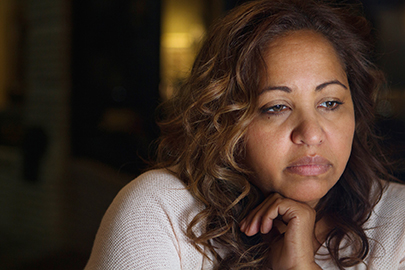Up to 25% of women experience migraine headaches during their reproductive years; often migraine headaches may be triggered or exacerbated by hormonal changes. It has been estimated that 7-14% of women experience migraines only during the premenstrual or menstrual phase of their cycles. Another 52-70% experience headaches throughout the month but note increased headache activity before or during menses.
Interestingly, before puberty, the prevalence of migraine appears to be similar for boys and girls. Peak migraine incidence in girls occurs at menarche, and in adulthood females outnumber male migraine sufferers by about 3 to 1.
The reported effects of pregnancy, oral contraceptives and menopause on migraine headache patterns have been variable. It is believed that declining estrogen levels may be an important trigger, and it is thought that progesterone may also play a role. Migraine often, but not always, improves during pregnancy; however, postpartum migraine flares are common. The effects of oral contraceptive use are quite variable: migraines may improve, worsen, or remain the same. Low estrogen dose oral contraceptives usually have no effect or may improve migraine. Estrogen replacement therapy for menopausal women often exacerbates migraines.
Treatment options include aspirin, ibuprofen, or acetaminophen, often combined with caffeine, for mild attacks. Triptans (including sumatriptan) or DHE (dihydroergotamine) may be used for moderate to severe attacks. Migraine prophylactic agents include beta-blockers, calcium channel blockers, tricyclic antidepressants, anti-epileptic agents, and serotonin receptor antagonists. For menstrual migraines, estradiol-containing compounds medications (oral, transdermal or percutaneous gel) may be used to prevent migraines. Progesterone alone appears to have little therapeutic value. In general, it is helpful for a woman experiencing new onset or exacerbation of migraine to seek consultation from a neurologist.
Kimberly H. Pearson, MD
Women’s Mental Health. Kornstein SG, Clayton AH. The Guilford Press: New York. 2002.
Brandes JL. The influence of estrogen on migraine: a systematic review. JAMA. 2006 Apr 19;295(15):1824-30. Loder EW. Menstrual migraine: pathophysiology, diagnosis, and impact. Headache. 2006 Oct;46 Suppl 2:S55-60.










